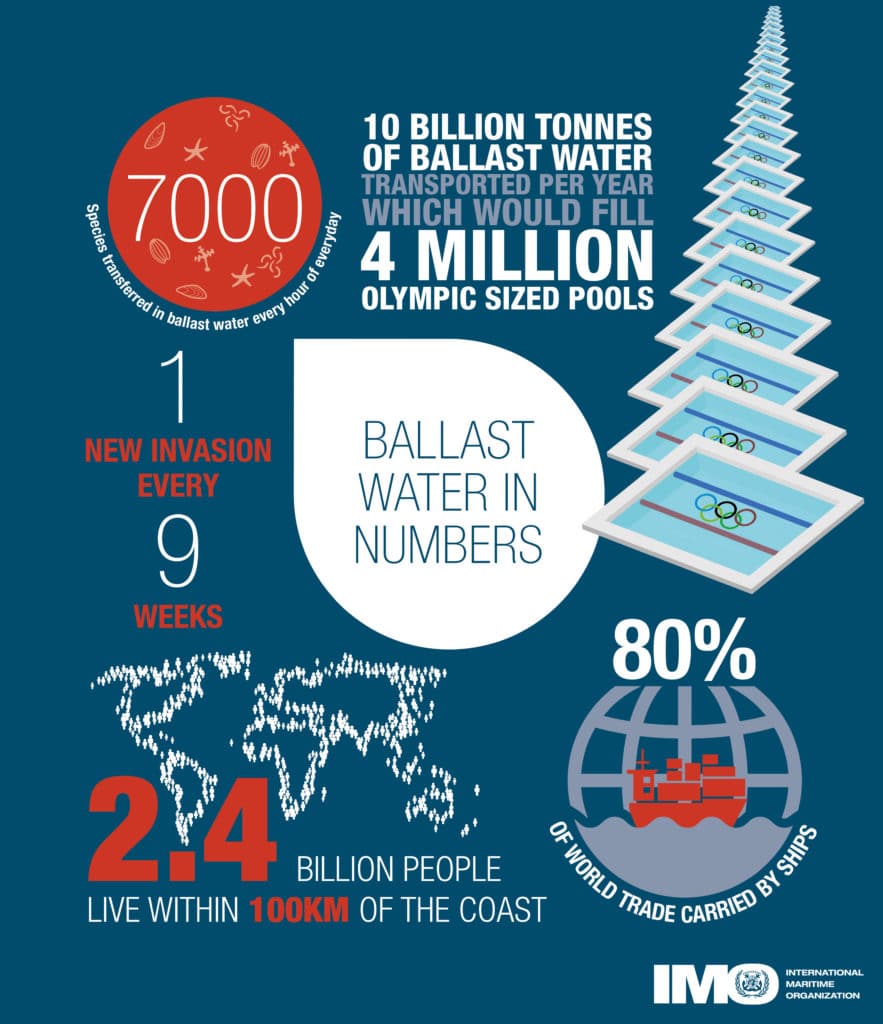
Ballast water management systems, by filtering seawater with wire mesh, are very important to local ecosystems as well as the worldwide shipping industry due to the approval of a worldwide standard that ocean shipping vessels must treat and filter their ballast water before dumping it into the ocean when traveling from port to port.
Ballast water may be taken on board by ships for stability and the water generally contains thousands of aquatic or marine microbes, plants, and animals, which are then carried across the globe. Untreated ballast water released at the ship’s destination could potentially introduce the problem of new invasive marine species. Hundreds of such invasions have already taken place, sometimes causing serious issues for local ecosystems around the world.
The International Convention for the Control and Management of Ships’ Ballast Water and Sediments (BWM Convention) was adopted in 2004 to introduce global regulations to control the transfer of potentially invasive species. With the treaty now in force, ships need systems to manage their ballast water.
There has been a rush lately to implement these standards and add ballast water management systems to ships, which include seawater filters made with sintered wire mesh.
Approval of BWM systems
The BWM Convention requires that ballast water management systems used, to comply with the Convention, must be approved by the Administration taking into account the Guidelines for approval of ballast water management systems (G8). Read more about the guidelines.
Our sintered wire mesh products are made of corrosion-resistant Type 904L Stainless Steel or 2205 Duplex Stainless Steel and can be used in self-cleaning automatic seawater filters that are incorporated into these ballast water management systems (BWMS). We can offer these filters in a wide range of micron ratings, lengths, and diameters, with configurations including perforated metal.
